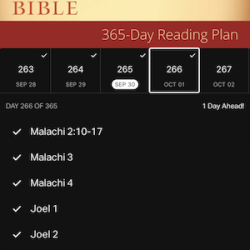
In the last article, we discussed the idea that our understanding of Jesus, much like Yahweh, should impact everything about our lives. The question of who Jesus is, then, should be at the forefront of our minds. If Jesus is God, the embodiment of Yahweh Himself, then we owe Him our worship just as commanded in the Law. If Jesus is not God, then we Christians are wrong and need to figure something out… and fast.
The Jewishness of Jesus and Its Importance
Over this series of articles, I will lay out the case for the divinity of Jesus. This case is five-fold, and each article will be dedicated to each example of Jesus claiming His divinity. Together they create a cumulative case for Jesus’ divinity. First, let’s discuss Jesus accepting the honor and worship due to God alone. As said before, we must understand the honor and worship of Jesus from a Jewish context. Jesus often times claimed to be the Son of Man, and used other Jewish types for Himself to show that He was a Jewish Messiah. The Jewishness of Jesus is essential to His identity and our understanding of it.
Monotheism and Jesus
And so, as I have stated before, the heart of Jewish culture is that there is one true God worthy of Worship. In the book of Deuteronomy, Moses recounts what Yahweh told him on Mount Sanai; the covenant people of God are about to enter into the land of Canaan, and are about to take the land promised to them by The Lord. Before this occurs, Moses gives a series of speeches as a reminder of how Israel is to relate to Yahweh. Up front and center in his second address are the commands of Yahweh.
Conditional Covenant
He states:
“He [Yahweh] spoke to me, and I passed his words on to you. This is what he said:
‘I am the Lord your God, who rescued you from the land of Egypt, the place of your slavery. You must not have any other god but me. You must not make for yourself an idol of any kind, or an image of anything in the heavens or on the earth or in the sea. You must not bow down to them or worship them, for I, the Lord, your God, am a jealous God who will not tolerate your affection for any other gods. I lay the sins of the parents upon their children; the entire family is affected-even children in the third and fourth generations of those who reject me. But I lavish unfailing love for a thousand generations on those who love me and obey my commands.’”
-Deuteronomy 5: 5b-10
What Do We See?
What do you notice in this passage?
First, we see Yahweh reminding Israel of His rescuing of them from slavery in Egypt. We also see a glimpse of His character in the back part of this passage. His justice and his mercy can certainly be seen.
What I want you to notice, however is that there was a strict prohibition of bowing down and worshipping anything other or anyone other than Yahweh. It is not tolerated. Yahweh is jealous as a husband or wife is to his or her unfaithful spouse. And much like an unfaithful spouse affects their children, unfaithfulness to their God will constitute issues for their children in future generations This strict Monotheism is the lens through which we must view Jesus receiving worship.
If Jews bow down to Jesus, sing His praises as to God, or even call Him “Lord”, then it would be of the greatest blasphemy if they were incorrect in doing so. In other words, in order to not sin against their God and bring judgment upon themselves, 1st century Jews who followed Jesus had to be sure that they were right if they decided to worship Christ as Lord. If they were wrong, not only were they ostracized from the community, but they were sinning against their Lord and God.
Did Jesus Accept Worship and Honor?
Now that we have a good understanding of the stakes that 1st century Jews were dealing with in their decision to worship Jesus as Lord, we can begin looking at a few key passages that show Jesus accepting worship and honor from His disciples.
We will see one instance in each of the four Gospels where someone worshipped or bowed to Jesus. Let’s begin in the Gospel of Matthew.
Matthew
“But the boat was already a long distance from the land, battered by the waves; for the wind was contrary. And in the fourth watch of the night He came to them, walking on the sea. 26When the disciples saw Him walking on the sea, they were terrified, and said, ‘It is a ghost!’ And they cried out in fear. But immediately Jesus spoke to them, saying, ‘Take courage, it is I; do not be afraid.’
Peter responded and said to Him, ‘Lord, if it is You, command me to come to You on the water.’ And He said, ‘Come!’ And Peter got out of the boat and walked on the water, and came toward Jesus. But seeing the wind, he became frightened, and when he began to sink, he cried out, saying, ‘Lord, save me!’ Immediately Jesus reached out with His hand and took hold of him, and *said to him, ‘You of little faith, why did you doubt?’ When they got into the boat, the wind stopped. And those who were in the boat worshiped Him, saying, ‘You are truly God’s Son!’”
Matthew 14: 24-33
What Do We See?
Let us consider what is happening in this passage. The disciples are a long distance from the land. They are being battered by the winds and the waves of the sea and then they begin to see a ghost. But this was no ordinary ghost walking along the water, it was Jesus of Nazareth. Jesus sees their terror and tells them to take courage because “it is I” who is there. The phrase “It is I” as found in the NLT is most commonly translated as “I AM”. Jesus is not merely saying it’s me; I am here so don’t worry about. But He is saying I AM am here. I AM, Yahweh, the God of Israel, is in your midst. Have courage. Have faith.
Peter enters the water after Him at His command. He then begins to drown because of His lack of faith (don’t try this at home kids). Those in the boat begin worshipping Him. Why is this a big deal?
Because 1st century Jews aren’t to worship any other God’s beside Yahweh. To do so is blatant blasphemy. The followers of Jesus in this boat are not only confirming a view of God in which He has more than one Person (Trinitarians rejoice) but they are also saying that Jesus is Yahweh, the God of Israel!
How does Jesus respond? Business as usual. They continue onto the shore and He continues to heal others and fulfill Jewish prophecy.
Matthew’s Gospel shows Jesus accepting worship as Yahweh.
Mark
Check out this passage in Mark:
“So they arrived at the other side of the lake, in the region of the Gerasenes. When Jesus climbed out of the boat, a man possessed by an evil spirit came out from the tombs to meet him. This man lived in the burial caves and could no longer be restrained, even with a chain. Whenever he was put into chains and shackles—as he often was—he snapped the chains from his wrists and smashed the shackles. No one was strong enough to subdue him. Day and night he wandered among the burial caves and in the hills, howling and cutting himself with sharp stones.
When Jesus was still some distance away, the man saw him, ran to meet him, and bowed low before him. With a shriek, he screamed, ‘Why are you interfering with me, Jesus, Son of the Most High God? In the name of God, I beg you, don’t torture me!’ For Jesus had already said to the spirit, ‘Come out of the man, you evil spirit.’”
-Mark 5: 1-8
What Do We See?
Jesus and His disciples landed in a region known as the Gerasenes. Here a man who was tormented by demons came up to Him and bowed low to Him. This idea of bowing low to someone is done out of respect or honor.
Perhaps this could be understood as someone simply bowing as he asks a favor. Yet, the man doesn’t ask a favor or a question. In fact, the language seems to convey a serious form of honor. In my view, it seems that the best explanation for why the man bowed in reverence is that he thought of Jesus as someone who was divine. As stated before, this kind of bowing to a man would, again, be problematic for someone a part of any of the Jewish traditions at that time.
It would be borderline blasphemy.
When he bows before Jesus, the demonic spirit takes over and interacts with Him. Jesus plays no games. He demands the Spirit to come out of the man.
Luke
In his Gospel account, Luke the doctor painted Jesus as the great physician. But does he record any instances of Jesus accepting worship?
Here is one:
“Then Jesus led them to Bethany, and lifting his hands to heaven, he blessed them. While he was blessing them, he left them and was taken up to heaven. So they worshiped him and then returned to Jerusalem filled with great joy. And they spent all of their time in the Temple, praising God.”
-Luke 24: 50-53
What Do We See?
Leading up to this moment, the disciples had spent all of there time over the last 3 years alongside Jesus. They had eaten with Him, camped out with Him, witness His miracles, and have watched His theological and logical sparring with the Pharisees, Sadducees, and the Herodians. Following His crucifixion, they saw Him risen from the dead (and later on were willing to die for that fact). Here, we see Jesus ascend into heaven, and then they begin to do what?
They begin to worship Him, leave for the temple, and then worship God.
The monotheistic disciples worshiped Jesus, and then worshiped God.
We must again keep in mind the implications of this on Jewish monotheism. The disciples are worshipping Jesus as if He were in God’s place. They are well aware of Yahweh’s rule of not having any other gods before Him. Yet, they view Jesus and God as one in the same.
John
If you are not familiar with the Gospels, Jesus heals a lot of people. This passage in John takes places right after the healing of a blind man. After the healing, the blind man and Jesus have this exchange:
When Jesus heard what had happened, he found the man and asked, “Do you believe in the Son of Man?”
The man answered, “Who is he, sir? I want to believe in him.”
“You have seen him,” Jesus said, “and he is speaking to you!”
“Yes, Lord, I believe!” the man said. And he worshiped Jesus.
Then Jesus told him, “I entered this world to render judgment—to give sight to the blind and to show those who think they see that they are blind.”
Some Pharisees who were standing nearby heard him and asked, “Are you saying we’re blind?”
“If you were blind, you wouldn’t be guilty,” Jesus replied. “But you remain guilty because you claim you can see.
-John 9: 35-41
What Do We See?
Jesus heals a blind man. The blind man then goes on to the temple and testifies to the Pharisees about what happened. After having His testimony shot down, Jesus approaches him and asks if he believed in the Son of Man. The man wished to believe and wanted to know who the Son of Man was. Jesus then claims the name for Himself and accepts the worship of the man.
Here is yet another example of Jesus willingly accepting worship as if He were God. As we have seen, there are instances in each of the 4 Gospels where Jesus accepts worship as if He were God. Within a monotheistic Jewish context, Jesus’ acceptance of worship is unprecedented even among others claiming to be the Messiah at the same time as Him.
Conclusion
Jesus’ view of His divine authority is obvious in all four Gospels. Jesus does not only witness people praising Him, but He gladly accepts it. This type of worship and honor, sometimes in the form of bowing down, is due only to Yahweh. Jesus accepting this worship as if to Yahweh is an important piece of the puzzle in understanding how Jesus viewed Himself.
So back to our question.
What did Jesus Do?
He accepted worship…

















